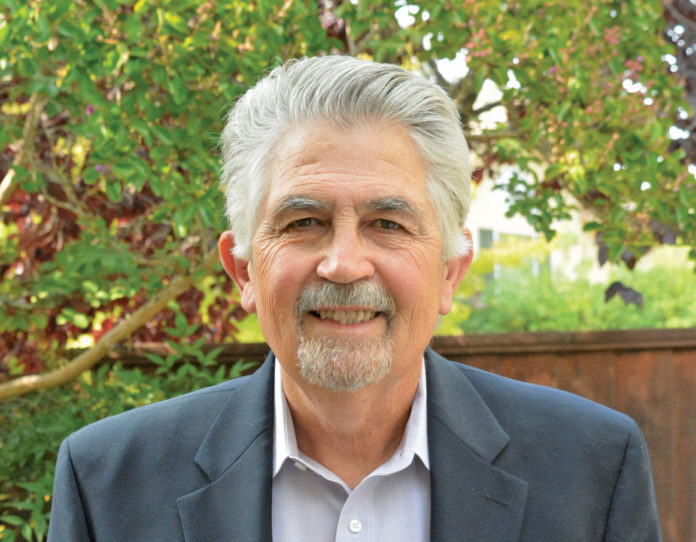I believe it was Thomas Jefferson who postulated that the government closest to the people governs best. That maxim is being sorely tested each and every year as the edicts and mandates flow wildly from our state government in Sacramento to over-burdened cities and counties. This centralization is having a chilling effect on the productivity and efficiency of local governments and it is only getting worse.
If you had attended Scotts Valley’s last city council meeting, I think you would have appreciated the dynamic and the flow of the session. First, there is public comment time, where in the tradition of Vox Populi, anyone can express their opinion on all things not on the agenda.
On this night, an appreciative citizen came to thank our city manager, Mali LaGoe, for conducting a Citizens’ Academy over the course of several months, in which the complexities of running a city were shared. That was followed by a somewhat disgruntled citizen who was concerned about a proposed three-story building close to his neighborhood.
Finally, the Council approved a nine-unit development on the north end of town. Routine. Productive. Effective. Transparent. People were heard. Action was taken. Citizens left that meeting feeling they had a modicum of control in their community’s affairs.
Contrast that with the legislature’s vast overreach in its attempt to close anti-housing loopholes that have battered local communities’ pursuit to build needed, responsible housing. The intentions were good. Affordable housing is in short supply and cities have failed to live up to their prescribed housing obligations.
But the remedy imposed by the state was extremely radical, heavy-handed and punitive. Scotts Valley has been tasked with building 1,220 units in the next eight years. Things are even worse for Capitola, whose requirement is 1,300-plus.
Some argue that cities are getting what they deserve. In every community, neighborhood groups have routinely challenged and opposed even responsible housing and the cumulative effect has led to a chronic affordable housing shortage. And some cities have simply thumbed their noses at the state’s polite requests to do their part and build.
And so, in its “no more Mr. nice-guy” mode, the state’s hammer has come down and the mandates are real and enforceable. If a city’s housing element is out of compliance, then it exposes itself to a thing called “builders remedy.” That means any developer who proposes a project with at least 20% affordable housing can build without any community oversight or input and cities will now be left twisting in the wind as casual observers, while the bulldozers flatten and reign supreme.
This scenario is not hypothetical. Just this week, a development company contacted our city, using the “builders remedy” argument that it has a right to develop a multi-level 200-plus unit project on a small lot within the city. So the outcome of the State’s housing directive is that a Midwest company, a thousand miles away, has more control over our city’s future than its citizens do. That’s wrong.
I would propose a “City’s Remedy” where the state rethinks its “one-size-fits-all” position on how to meet the state’s housing needs. Every community is unique. The integrity of local control must be trusted. The state should honor and embrace that.
We should work in a spirit of cooperation and find balanced, workable solutions that set up cities and counties for success. To do otherwise condemns us to a path of confusion, skepticism and distrust that serves no one and compromises our future. We can and should do better.
Randy Johnson is mayor of the City of Scotts Valley. To reach Johnson, email rl***@*****st.net or call 831-438-0633.












